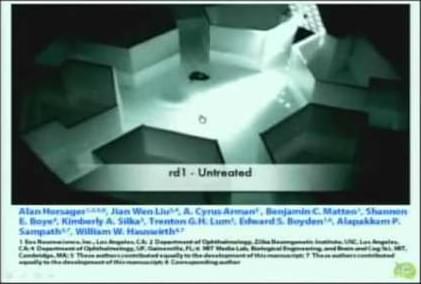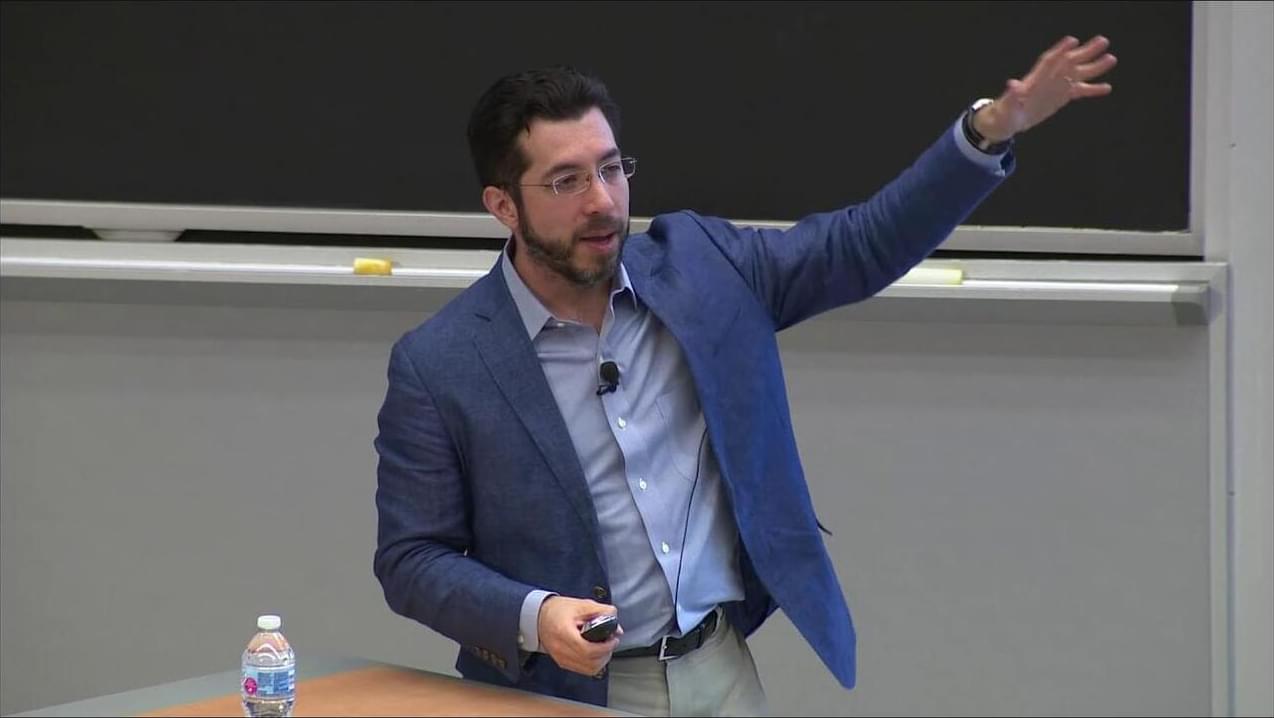Nov 26, 2024
Hidden players: the bacteria-killing viruses of the gut microbiome
Posted by Arthur Brown in category: biotech/medical
Viruses known as bacteriophages are difficult to study, but they are beginning to give up their secrets.
Viruses known as bacteriophages are difficult to study, but they are beginning to give up their secrets.

“Life is incredible.” Here’s how a brain implant changed the life of Jon Nelson, who long suffered from severe depression. Now a patient advocate for startup Motif, he spoke to Emily Chang about the hope of using neurotech to treat mental illnesses.
——-
Like this video? Subscribe: https://www.youtube.com/Bloomberg?sub_confirmation=1
Advance paves the way for broad applications in medicine and biotech. Researchers from the UCLA Samueli School of Engineering and the University of Rome Tor Vergata in Italy have developed synthetic genes that function like the genes in living cells.
The artificial genes can build intracellular structures through a cascading sequence that builds self-assembling structures piece by piece. The approach is similar to building furniture with modular units, much like those found at IKEA. Using the same parts, one can build many different things and it’s easy to take the set apart and reconstruct the parts for something else. The discovery offers a path toward using a suite of simple building blocks that can be programmed to make complex biomolecular materials, such as nanoscale tubes from DNA tiles. The same components can also be programmed to break up the design for different materials.
The research study was recently published in Nature Communications and led by Elisa Franco, a professor of mechanical and aerospace engineering and bioengineering at UCLA Samueli. Daniela Sorrentino, a postdoctoral scholar in Franco’s Dynamic Nucleic Acid Systems lab, is the study’s first author.
The secret to cellular youth may depend on keeping the nucleolus—a condensed structure inside the nucleus of a cell—small, according to Weill Cornell Medicine investigators. The findings were elucidated in yeast, a model organism famous for making bread and beer and yet surprisingly similar to humans on the cellular level.
The study, published Nov. 25 in Nature Aging, may lead to new longevity treatments that could extend human lifespan. It also establishes a mortality timer that reveals how long a cell has left before it dies.
As people get older, they are more likely to develop health conditions, such as cancer, cardiovascular disease and neurodegenerative diseases.
Conventional components perform incredibly inefficiently at these sub-freezing temperatures, the scientists said. They’re also very hard to maintain — as more and more qubits are added to a system, the more heat is emitted, which makes it more difficult and expensive to sustain these ultralow temperatures.
Because the new transistor — dubbed the “cryo-CMOS transistor” — is optimized to operate at temperatures under 1 K and emit near-zero heat, it offers plenty of advantages over traditional electronics, representatives of the Finnish company SemiQon, which developed the transistor, said in a statement.
The genome-editing technology can be supercharged by artificial intelligence—and the results are already being felt.
Summary: Researchers have developed a new method to profile gene activity in the living human brain, offering new insights into neurological conditions like epilepsy. By analyzing RNA and DNA collected from electrodes implanted in patients’ brains, the study linked molecular data with electrical recordings of seizures, creating a detailed snapshot of gene activity.
This approach enhances understanding of seizure networks, potentially improving the precision of epilepsy surgeries for patients who don’t respond to medication. Beyond epilepsy, the method could have applications in studying Alzheimer’s, Parkinson’s, and schizophrenia, advancing knowledge of brain disorders at the molecular level.
The Model Context Protocol connects an AI system to multiple data sources, which Anthropic says can eliminate the need to create custom code for each one.

Ed Boyden is a professor at the MIT Media Lab working on the most advanced brain-computer interfacing technology currently available, optogenetics. At Singularity Summit 2009.

This is the first symposium of Xapiens at MIT — “The Future of Homo Sapiens”
The future of our species will be majorly influenced by the technical advancements and ethical paradigm shifts over the next several decades. Artificial intelligence, neural enhancement, gene editing, solutions for aging and interplanetary travel, and other emerging technologies are bringing sci-fi’s greatest ideas to reality.
Continue reading “Ed Boyden — The Future of Humanity | Xapiens Symposium” »
